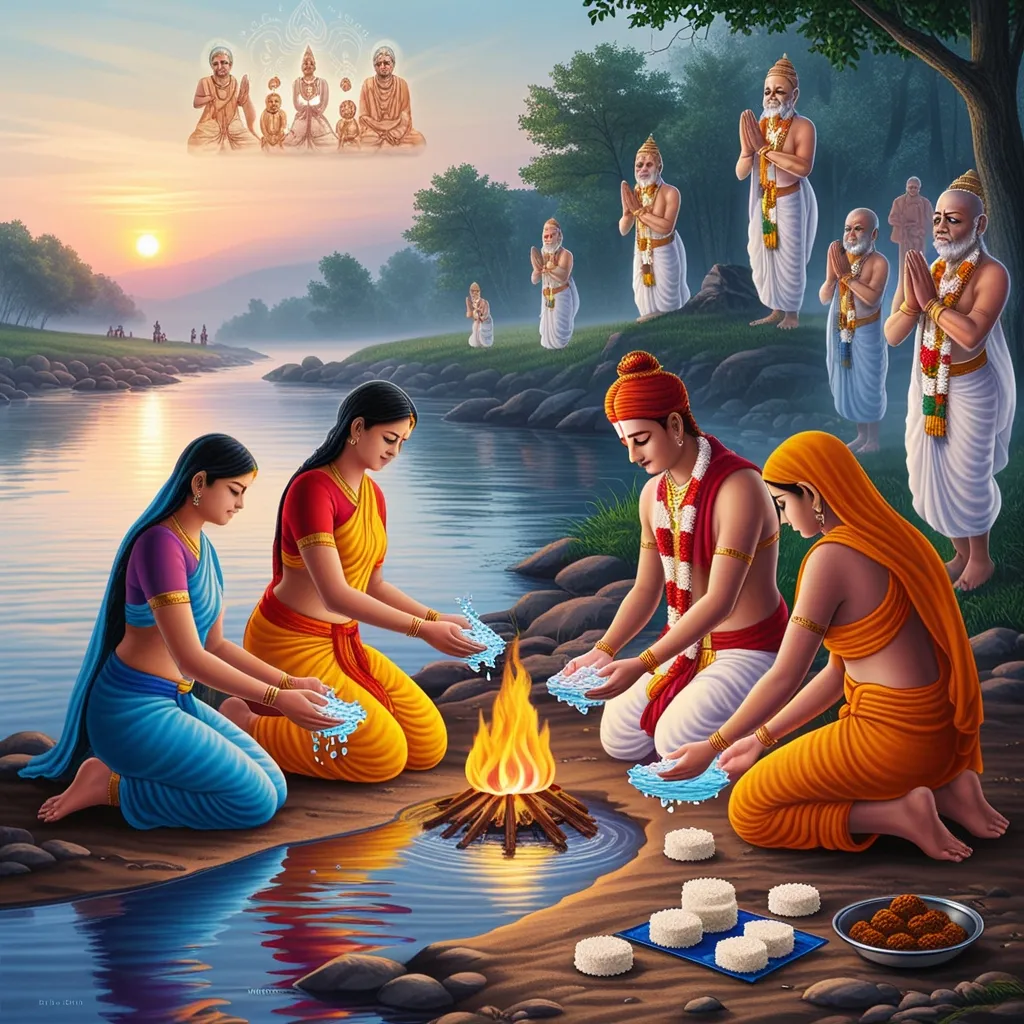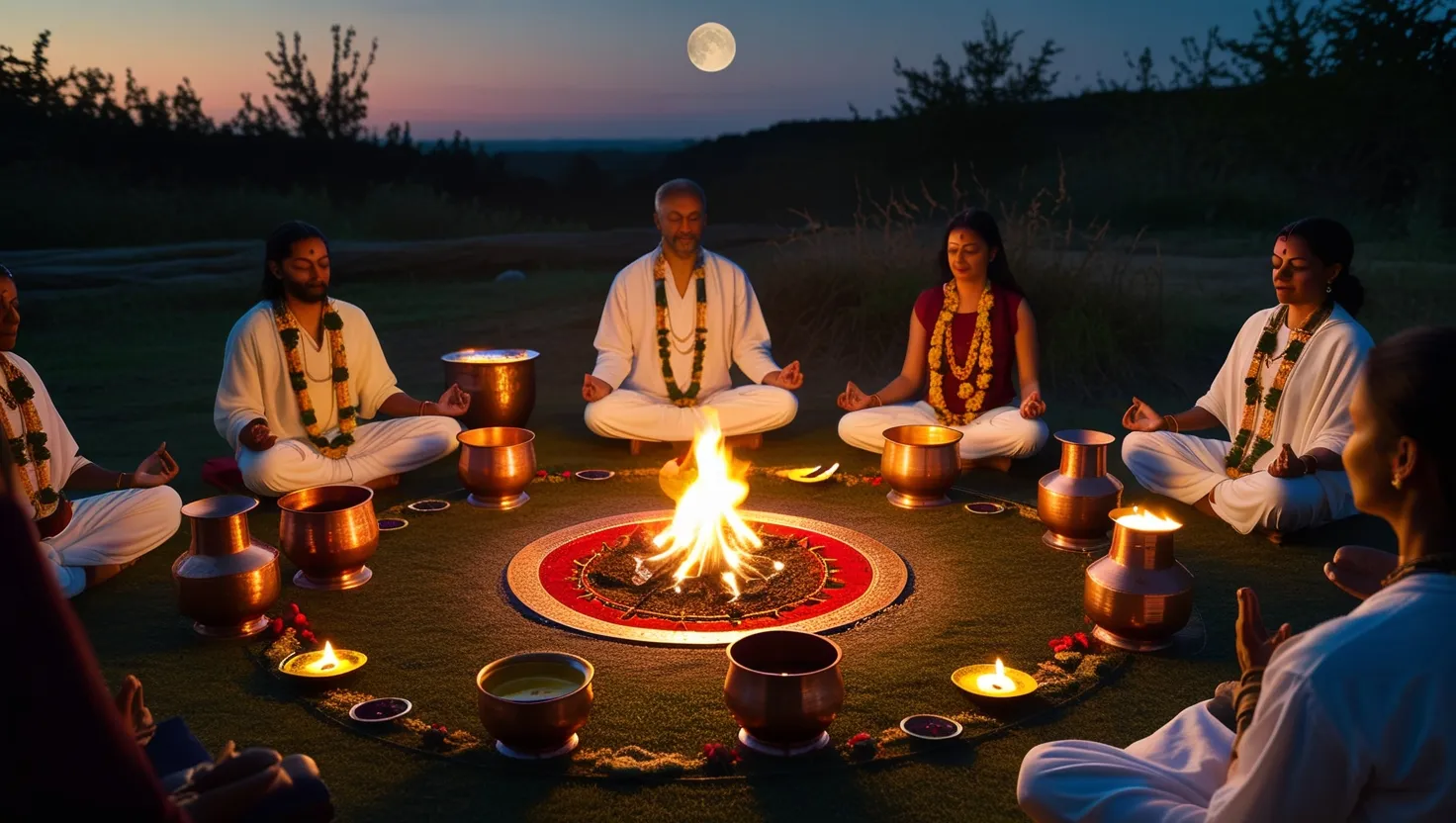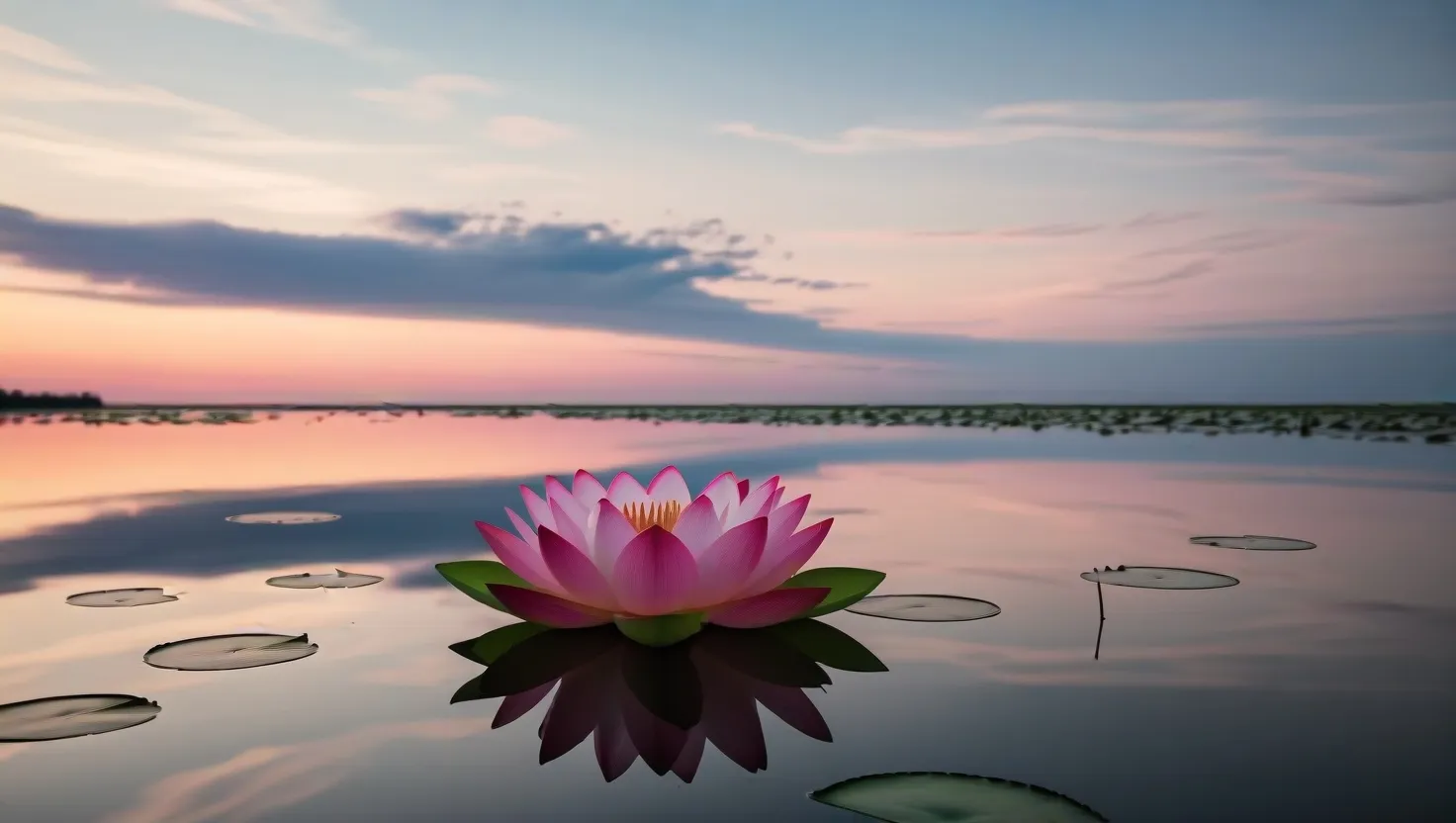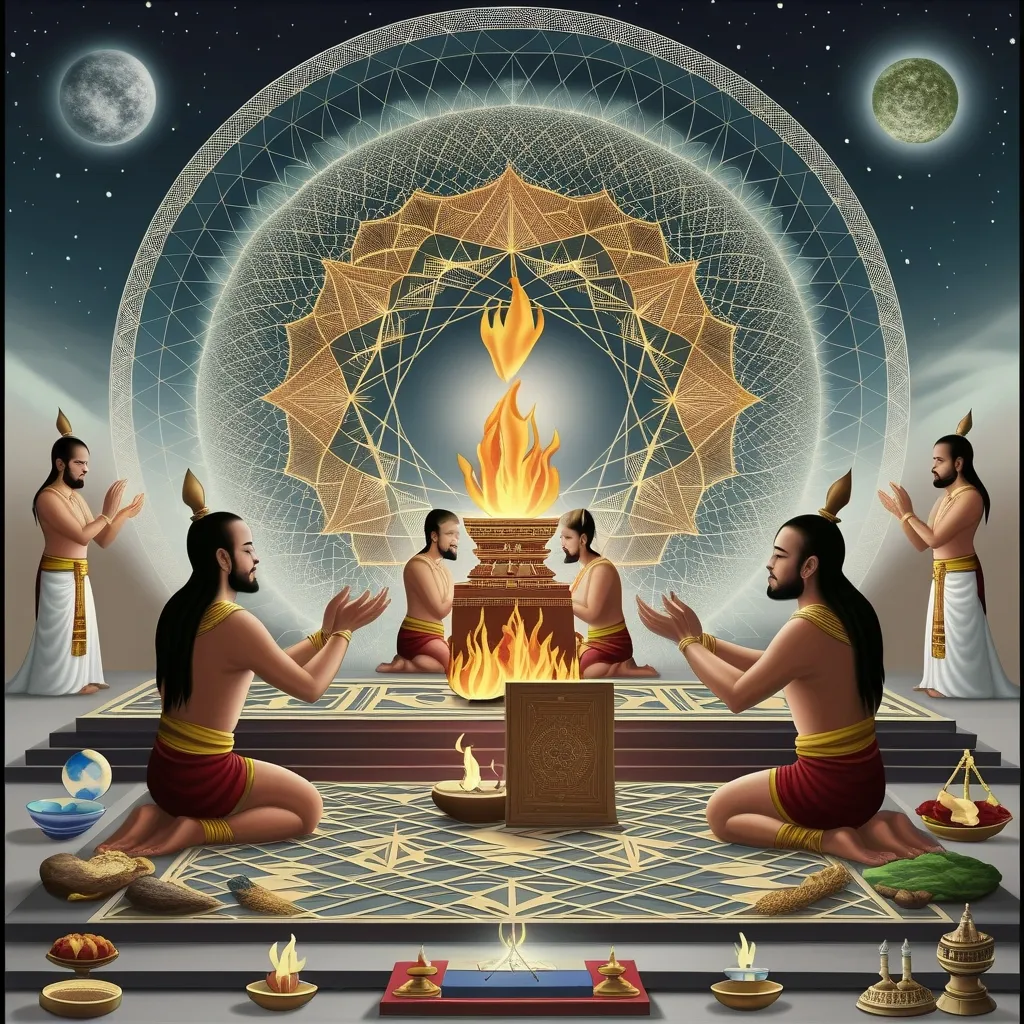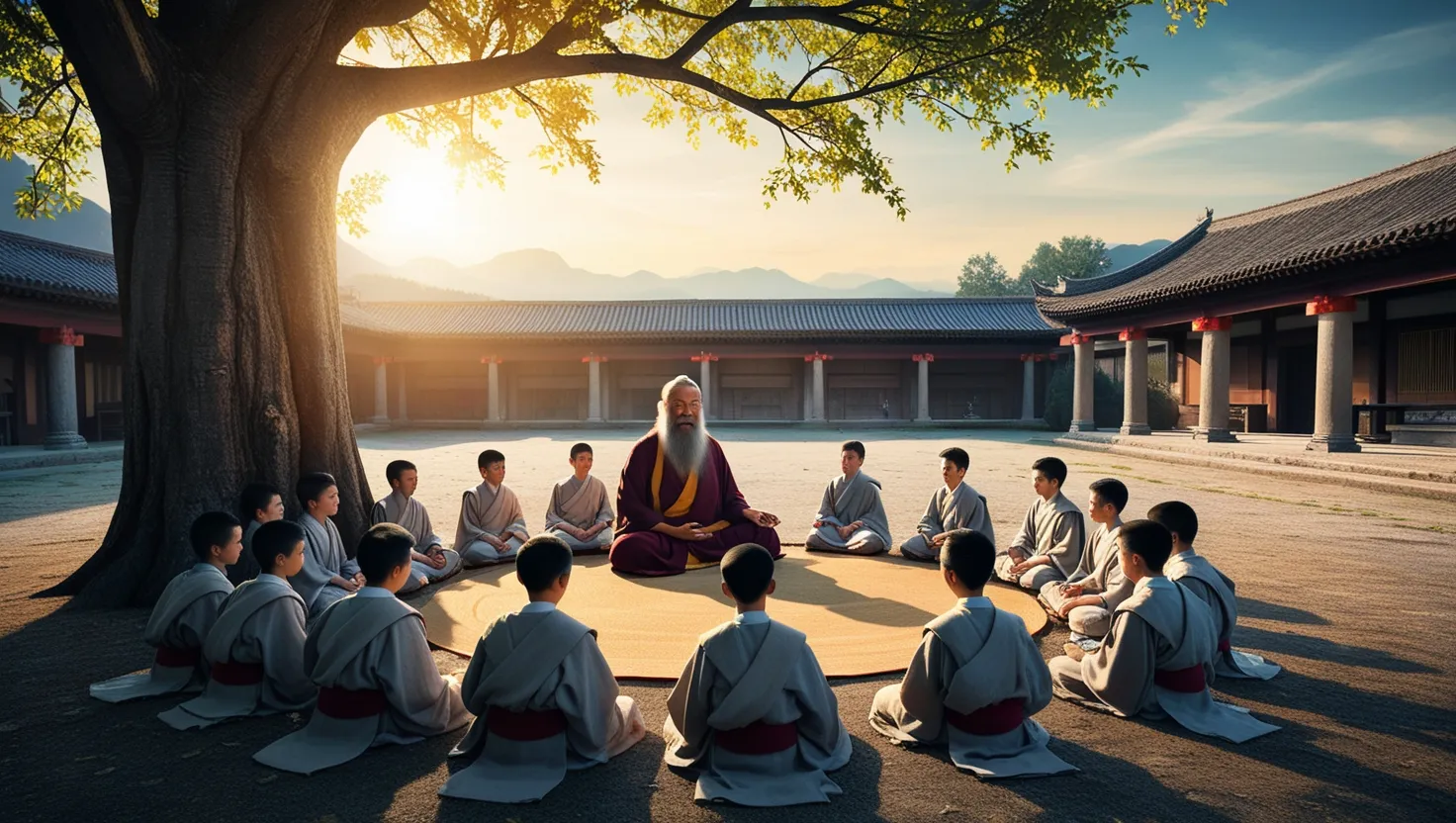In the vibrant and intricate landscape of Hindu rituals, Pitru Yajna holds a special place. This long-standing practice, originating from the Vedic traditions, is all about honoring and appeasing one’s ancestors. Its significance lies in ensuring both familial happiness and spiritual well-being. This ritual isn’t just some ceremonious act; it’s a profound connection to our lineage and a way to keep the blessings and peace flowing within the family.
Alright, let’s dive into what Pitru Yajna is really about. In a Hindu Brahmin’s daily life, there are five great observances, and Pitru Yajna is one of these. These observances act like a bridge between the individual and the universe, maintaining harmony. Specifically, Pitru Yajna focuses on offering oblations to ancestors, also known as Pitrs. This is a way of showing gratitude and seeking their blessings for prosperity and peace.
In a Brahmin’s daily routine, Pitru Yajna involves offering water libations, or Tarpana, to the ancestors. This simple daily act is often performed either in the morning or evening. It’s a touching way to stay connected with the lineage, honoring those who are no longer with us. The belief is that the water offered quenches the thirst of the ancestors and brings them peace.
Yet, Pitru Yajna is more than just a daily offering. It includes elaborate ceremonies, especially at specific times of the year. Take Pitru Paksha, for example. This period falls during the dark half of the month of Bhadrapada. Families come together to conduct various rites, including offering rice cakes (Pinda) and water. These ceremonies often happen on the new moon day, also known as Amavasya, and are called Parvana rites.
The symbolic aspect of these offerings is quite fascinating. The rice cakes represent the ancestors and are connected to the three realms of existence: the earth (Bhur), the sky (Bhuvar), and the heavens (Svar). The first cake is offered to the father, symbolizing the earth; the second to the grandfather, symbolizing the sky; and the third to the great-grandfather, symbolizing the heavens. This symbolic act highlights the intricate connection between individuals, their families, and the universe.
Pitru Yajna is more than just a set of physical acts; it’s a profound psychological and spiritual exercise. By honoring the ancestors, one acknowledges the unbroken continuity of life and the interconnectedness of all beings. This ritual offers a sense of deep belonging and roots, which are crucial for both emotional and spiritual well-being.
One of the heartwarming aspects of Pitru Yajna is that it often involves the entire family, and sometimes the broader community. During Pitru Paksha, families gather to perform these rituals together, which strengthens family bonds and underscores the importance of their ancestral heritage. This communal participation echoes the deep value placed on family and community in Hindu culture.
The roots of Pitru Yajna go way back to the Vedic era when rituals and sacrifices were at the core of religious life. The Yajur Veda, one of the four Vedas, provides detailed instructions on performing these rituals. Despite evolving over time, these practices remain an integral part of Hindu tradition, showcasing the enduring significance of acknowledging and honoring one’s ancestors.
The whole idea behind Pitru Yajna aligns with Hindu philosophy, where it’s seen as a form of personal sacrifice and devotion. Surrendering something for the sake of the ancestors reflects the broader concept of Yajna as a spiritual exchange. This act of sacrifice, devotion, and respect towards one’s ancestors is what gives Pitru Yajna its deep meaning and fulfillment.
On a more practical note, performing Pitru Yajna is quite straightforward. Creating a sacred space, often with a fire pit or a designated area for offerings, is the first step. The ritual includes reciting mantras, offering water and rice cakes, and sometimes performing a small fire ceremony or Homa. Ancient texts and traditions guide these steps, ensuring the ritual is performed with the right intent and method.
The benefits of Pitru Yajna are vast. It’s believed to bring peace and satisfaction to the ancestors, which translates to the family’s well-being and prosperity. The ritual helps cleanse any accumulated sins or negative karma, promoting purity and spiritual growth. Additionally, it reinforces family values and the respect for one’s lineage, echoing the importance of family roots.
To sum it all up, Pitru Yajna is a deeply meaningful ritual that binds us to our ancestors and the universe. It serves as a daily reminder of our roots and responsibilities towards our lineage. By performing this ritual, not only do we honor our ancestors, but we also ensure our own spiritual and familial well-being. As ancient wisdom beautifully puts it, honoring our ancestors is a universal act of respect that transcends time and space.
